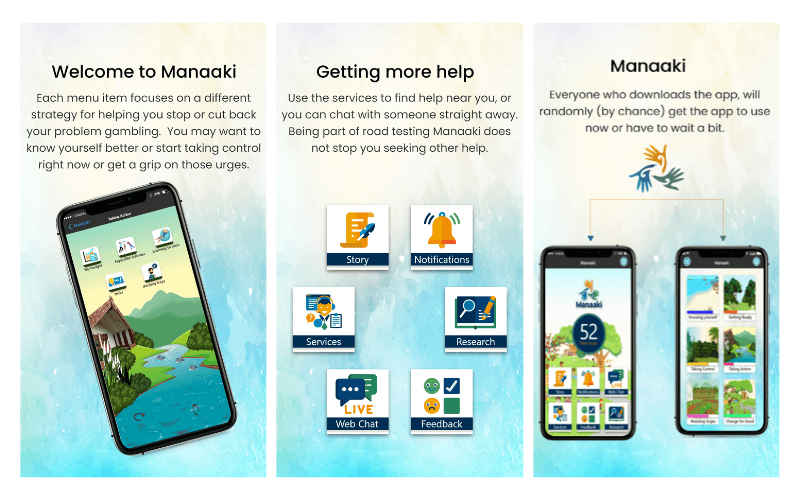Manaaki | New Mobile App to Help with Problem Gambling
 Chistopher Abela
Chistopher AbelaPosted On: JUN - 24 - 2020
Reading Time: 4 minutes

A new mobile app has been released to help players suffering from problem gambling. The app was unveiled by Gayl Humphrey, the study lead from the National Institute for Health Innovation (NIHI) at the University of Auckland.
Manaaki | Mobile App to Combat Problem Gambling
The mobile app is called Manaaki which translates into ‘to extend mana to others and to encourage and urge on’ in Māori. It has been described as a ‘support package in your pocket’ for players looking for help with gambling related problems.
As per Gayle, the app is vital for players in New Zealand, a country which has seen a phenomenal rise in online gambling.
With more international casinos offering their products such as Betway, it is vital to also provide help to players who might suffer from gambling related problems.
The app identifies a gap in the market in terms of the help that is available to gamblers. This mobile app looks to fill that void and extends help especially to those who find using or accessing current services difficult.
It allows players to access a dependable source that can provide them guidance via an app that is easily accessible.
Gayle had the following to say regarding Manaaki “Manaaki blends existing tools, strategies and evidence from traditional cognitive-behavioural therapy treatment and offers it in a ‘pick and mix’ snackable selection of modules that can arm people with the skills and insight they need to help quit harmful gambling habits.”
With the aid of researches from Australia’s Deakin University, the app seeks to provide a similar service to one offered in neighbouring Australia. The Aussies have access to the GamblingLess online program and now Kiwis have something similar.
The mobile app is funded by a grant from the Health Research Council of New Zealand. There is also a study being conducted to evaluate Manaaki’s effectiveness.
NIHI researchers are currently reaching out to participants who can contribute to the study. Participants are being encouraged to come forward if they feel they can help with the study or are keen on managing their gambling habits with the use of the Manaaki app over a 12 week period.
Hāpai Te Hauora is also a crucial partner in not only the app’s development but also in contributing to the research efforts. Hāpai Te Hauora has been instrumental in providing national coordination for problem gambling harm prevention.
Stephanie Erick, Kaiwhakahaere of Hāpai Te Hauora believes that conducting a study around the time of lock down caused by the pandemic is an ideal opportunity to support gamblers looking to play at new slot sites.
New Zealand has seen an unprecedented rise in online gambling due to COVID-19 and Manaaki can serve as a life line for such individuals.
Stephanie Erick had the following to say “It is really important that we can take steps to provide other forms of support and in unprecedented times when online gambling is in promotion, developing mobile services makes so much sense. Communities are long overdue a suite of support tools and platforms that can reach more people and help them before their harmful gambling becomes problem gambling.
“People experiencing harms or problems from their gambling, are not always the first to put their hands up about accessing help. Whakama or shame is often a key reason for not seeking help. We don’t want this reluctance to mean that people don’t get the help that they need, so Manaaki has been designed as a way to support people to self-help by packaging evidence-based treatment into a readily accessible form, to use anytime and anywhere.”
If you are suffering from gambling related problems or know of someone that is, then we would urge you to download the Manaaki app that is available on both Google PlayStore and App Store. You can also send an email to [email protected].
The research being conducted has received approval from the New Zealand Health and Disability Ethic Committee. Participants willing to take part in the study will receive a small koha for their involvment.



